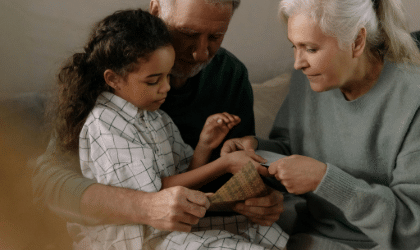One of the most critical considerations when it comes to immigration decisions in Canada, is the best interests of the child (BIOC). Whether in Humanitarian and Compassionate (H&C) applications, refugee claims, deferral requests or appeals, decision-makers are obliged to assess how an immigration outcome will impact any children involved. The BIOC principle applies to all children under the age of 18.
Why Are Decision Makers Obligated To Consider Children’s Best Interests?
Canadian law recognizes that children, due to their vulnerability, require special protection and care. Canada is also a signatory to the United Nations Convention on the Rights of the Child (CRC), which emphasizes that in all decisions affecting children, their best interests must be a primary consideration in the outcome of any decision.
The following are some situations where the Best Interests of the Child Apply in Immigration:
- Humanitarian and Compassionate (H&C) Applications
H&C applications allow individuals to seek permanent residency based on establishment in Canada and hardship, including how removal from Canada would affect their children.Factors such as a child’s emotional well-being, medical needs, and ties to Canada (such as schooling and friendships) play a crucial role in these decisions.The landmark Supreme Court of Canada decision in Baker v. Canada (Minister of Citizenship and Immigration) established that the best interests of the child must be taken into consideration during H&C exemption requests.
-
Refugee Claims
If a child is a refugee claimant, decision-makers assess whether returning them to their home country would put them at risk of harm.
The Refugee Protection Division (RPD) may also consider the child’s access to education, healthcare, and a stable environment here in Canada when assessing their need for protection.
-
Removals
When considering whether to grant a request for Deferral of Removal or Stay of Removal, the respective decision makers will often weigh a child’s best interests when deciding whether to defer or stay a removal.
The Immigration Appeal Division (IAD) will also consider a child’s best interests when deciding whether to cancel a removal order.
A child’s separation from their parent(s), disruption to their education, or lack of support in their home country can significantly impact decisions involving removals.
Key Factors that may be Considered in Best Interests of the Child Analysis
- Family Unity – If removal or deportation would result in separating a child from a parent, the emotional and psychological effects of this separation must be considered. Family reunification is a central component of Canadian immigration policy.
- Age and Level of Dependency – Younger children are generally more vulnerable and dependent on their caregivers.
- Education and Health – Access to proper schooling, medical care, and social support in Canada vs. the child’s home country.
- Stability and Social Ties – A child who has spent most of their life in Canada and is deeply integrated into the community may face severe hardship if forced to leave.
Recent Case Law on BIOC in Canada
Canadian courts have reinforced the importance of considering children’s best interests. In Kanthasamy v. Canada (2015), the Supreme Court of Canada ruled that BIOC must be given significant weight in immigration decisions, particularly in H&C applications. It is important to note that BIOC is an important factor for decision makers to consider but is not necessarily determinative.
Existing case law has suggested that unborn children can also give rise to the BIOC principle. The fact that a child was unborn at the time of a decision or application does not negate the obligation of a decision maker to undertake a BIOC analysis according to Hamzai v Canada (MCI), 2006 FC 1108 at para 33 and later emphasized in Ismail v. Canada (Public Safety and Emergency Preparedness), 2019 FC 845.
Contacting a Lawyer
If you or your family are navigating the immigration process, it is essential to highlight how the decision will affect any children involved. Whether in a refugee claim, an H&C application, or an appeal against deportation, demonstrating how a child’s well-being will be impacted can be a significant factor in the case.
If you need legal guidance on an immigration case involving children, contact us today.









